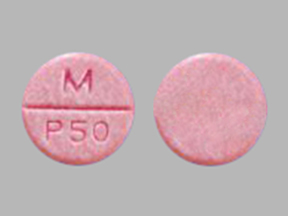
Phenytoin Infatabs Coupons & Savings Card – Discount Prices from $7.87
Brand for: Phenytoin
My prescription
Edit
50MG, Phenytoin (30 Tablet Chewables)
Select pharmacy

CVS
$21.03
COUPON PRICE
Walgreens
$7.87
COUPON PRICE
Walmart
$8.73
COUPON PRICE
Albertsons
$11.74
COUPON PRICEPhenytoin Infatabs savings card
Show this card to your pharmacist
Walgreens
$7.87
BIN
ID
PCN
GRP
015995
LHKPV524214
GDC
DR33
Powered by
More prescriptions for epilepsy
More prescriptions for epilepsy
Phenytoin Infatabs (Phenytoin) dosage forms
Dosage Quantity Price from Per unit 50MG 30 Tablet Chewables $8.73 $0.29 50MG 1 Tablet Chewable $2.71 $2.71 50MG 60 Tablet Chewables $14.96 $0.25 50MG 100 Tablet Chewables $23.26 $0.23
| Dosage | Quantity | Price from | Per unit |
|---|---|---|---|
| 50MG | 30 Tablet Chewables | $8.73 | $0.29 |
| 50MG | 1 Tablet Chewable | $2.71 | $2.71 |
| 50MG | 60 Tablet Chewables | $14.96 | $0.25 |
| 50MG | 100 Tablet Chewables | $23.26 | $0.23 |
What are infatabs?
Infatabs are a form of medication designed for children, typically in a chewable tablet form, to make it easier for them to take. They are often used to deliver specific dosages of medications such as acetaminophen or other pediatric formulations. The exact composition and use can vary depending on the specific medication and brand.
What is the drug phenytoin used for?
Phenytoin is primarily used to control seizures in the treatment of epilepsy. It helps in managing tonic-clonic (grand mal) and partial seizures. Additionally, it may be used to prevent seizures during or after neurosurgery.
Why is phenytoin not used anymore?
Phenytoin is still used in certain cases, but its use has declined due to the availability of newer antiepileptic drugs with more favorable side effect profiles and pharmacokinetics. Phenytoin can cause side effects such as gingival hyperplasia, hirsutism, and potential for drug interactions. Additionally, it requires careful monitoring of blood levels due to its narrow therapeutic range. Newer medications often offer improved safety and efficacy, leading to a preference for these alternatives in many situations.
What to avoid when taking phenytoin?
When taking phenytoin, it is important to avoid alcohol, as it can increase the risk of side effects and affect the drug's effectiveness. Additionally, certain medications and supplements, such as antacids containing calcium, magnesium, or aluminum, can interfere with phenytoin absorption. It's also advisable to avoid abrupt discontinuation of the medication without consulting a healthcare provider, as this can lead to increased seizure activity. Regular monitoring and communication with a healthcare provider are essential to manage potential interactions and side effects.
What does Dilantin do to your teeth?
Dilantin, also known as phenytoin, can cause gingival hyperplasia, which is an overgrowth of the gum tissue. This condition can lead to swollen, tender, or bleeding gums and may increase the risk of gum disease if not managed properly. Regular dental check-ups and good oral hygiene practices are important for individuals taking Dilantin to help minimize these effects.
